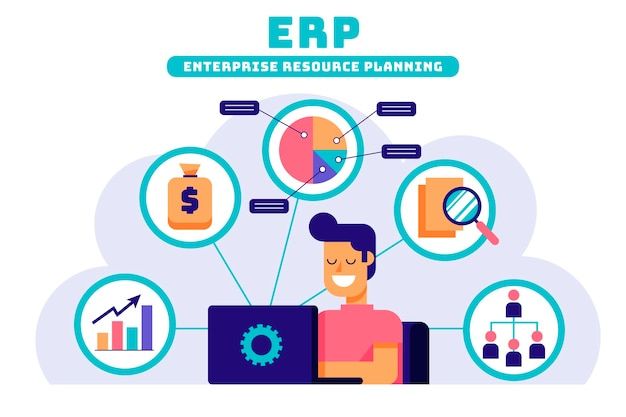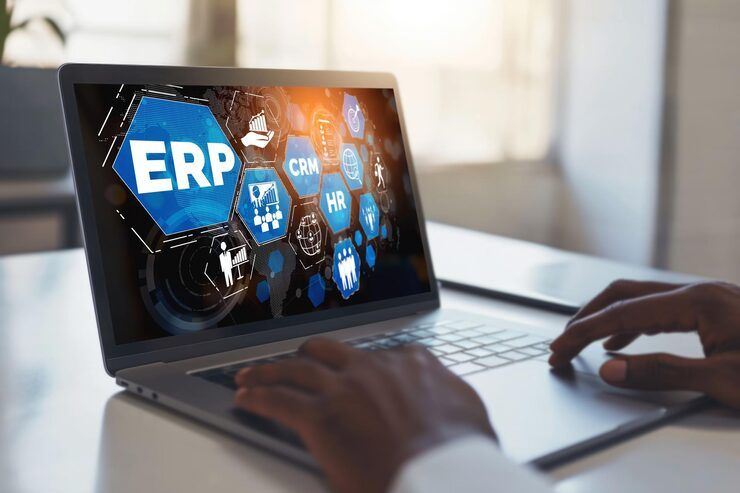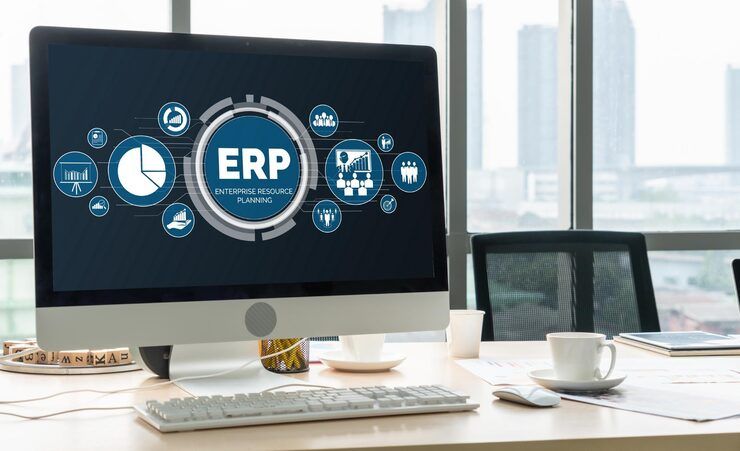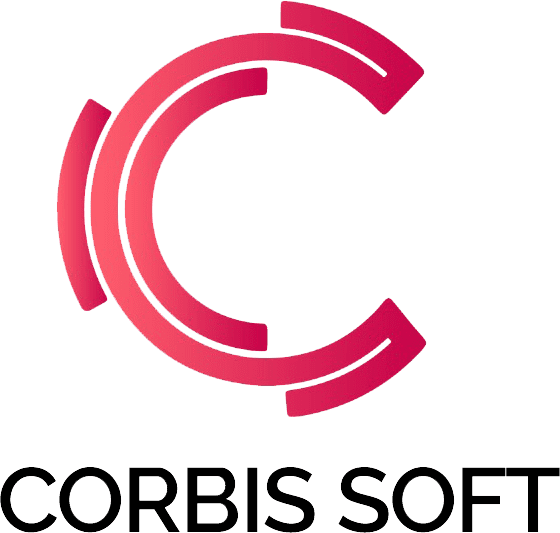In today’s digital world, businesses cannot rely on outdated methods of managing operations. Every business whether small, medium, or enterprise requires a centralized and efficient way to handle finance, sales, HR, inventory, and customer connections. This is where an ERP system comes in.
At Corbis Soft, we are experts at implementing ERP systems that make businesses smarter, more efficient, and more profitable. This article will tell you all you need to know about ERP systems if you’re thinking about using one. It will explain what they are, why they’re necessary, the problems you might face, and best practices for successful implementation.

What is ERP System Implementation?
ERP (Enterprise Resource Planning) system implementation is the process of integrating an ERP software solution into a business operations. ERP integrates all of your departments together into one system for finance, supply chain, HR, sales, inventory, and more, so you don’t have to use distinct tools for each one.
But implementation is more than just “installing software.” It’s about:
• Understanding how your business works
• Customizing the ERP work for you
• Teaching your team
• Migrating data safely
• Making sure that the new system is easy to use for long-term success
When done correctly, implementing ERP becomes the most important part of your business.

Why ERP System Implementation Matters
Businesses all across the world are putting money into ERP systems for these reasons:
1. More efficient operations: ERP combines all departments onto one platform, which gets rid of manual work and duplicates.
2. Better decision-making: Managers can make better and faster decisions when they have access to real-time data and insights.
3. Cost Efficiency: Automation reduces errors, decreases costs of doing business, and saves time.
4. Better teamwork: Teams can easily share data and work together.
5. Scalability: ERP can expand with your business, so it’s ready for the future.
After implementing an ERP system, businesses have changed a lot at Corbis Soft. They have become more efficient, visible, and flexible.

The Steps of ERP System Implementation
Implementing an ERP system is a long-term undertaking, not just a one-time job. Here’s a step-by-step guide to the conventional ERP setup process:
- Planning and analyzing needs
- Set goals, including keeping better track of your inventory, automating HR, or keeping track of sales.
• Look at the current processes and identify gaps.
• Choose the right ERP system for your organization.
- Selecting ERP Software
There are differences between ERP systems. For instance:
• Odoo ERP for being flexible and customizable
• SAP for businesses
3. System Design & Customization
Every business is unique & different. ERP needs to be customized with modules like:
- Sales & CRM
- Inventory Management
- HR & Payroll
- Finance & Accounting
- Project Management
4. Data Migration
This is one of the most critical steps. Clean and transfer all data (customers, vendors, products, transactions) into the ERP securely.
5. Testing & Training
Before going live, test the ERP completely. Train employees to use the system effectively to reduce resistance.
6. Go-Live & Support
Launch the system in stages or all at once, depending on your strategy. Continuous support and maintenance are very important.
Challenges in ERP System Implementation
ERP implementation comes with challenges, but with the right partner like Corbis Soft, they can be managed smoothly:
- Resistance to Change – Employees might hesitate to adopt new systems.
- Data Migration Risks – Incorrect data transfer can cause disruptions & problems.
- Cost & Time Overruns – Without proper planning, ERP projects can exceed budgets.
- Customization Complexity – Too much customization can make it take longer to get live.
By following best practices and giving hands-on training, Our team ensures that these challenges are minimized.

Best Practices for Successful ERP System Implementation
- Get Top Management Support – Leadership involvement increases project success rates.
- Clear Communication – Keep employees updated about goals and benefits.
- Choose the Right Partner – An experienced ERP partner like Corbis Soft can make or break your implementation.
- Train Employees Properly – Users must feel comfortable with the new system.
- Monitor and Improve – ERP is not a one-time project. Continuous optimization ensures long-term success.
ERP Implementation with Corbis Soft
At Corbis Soft, we not only implement ERP systems we ensure that it becomes a growth engine for your business. Our services include:
• Business Process Consultation
• ERP Selection & Customization
• Data Migration
• Employee Training
• Post-Go-Live Support
Whether you need our Corbis ERP, Odoo ERP, SAP, or Microsoft Dynamics, our experts design customized solutions for manufacturing, retail, trading, e-commerce, and services industries



